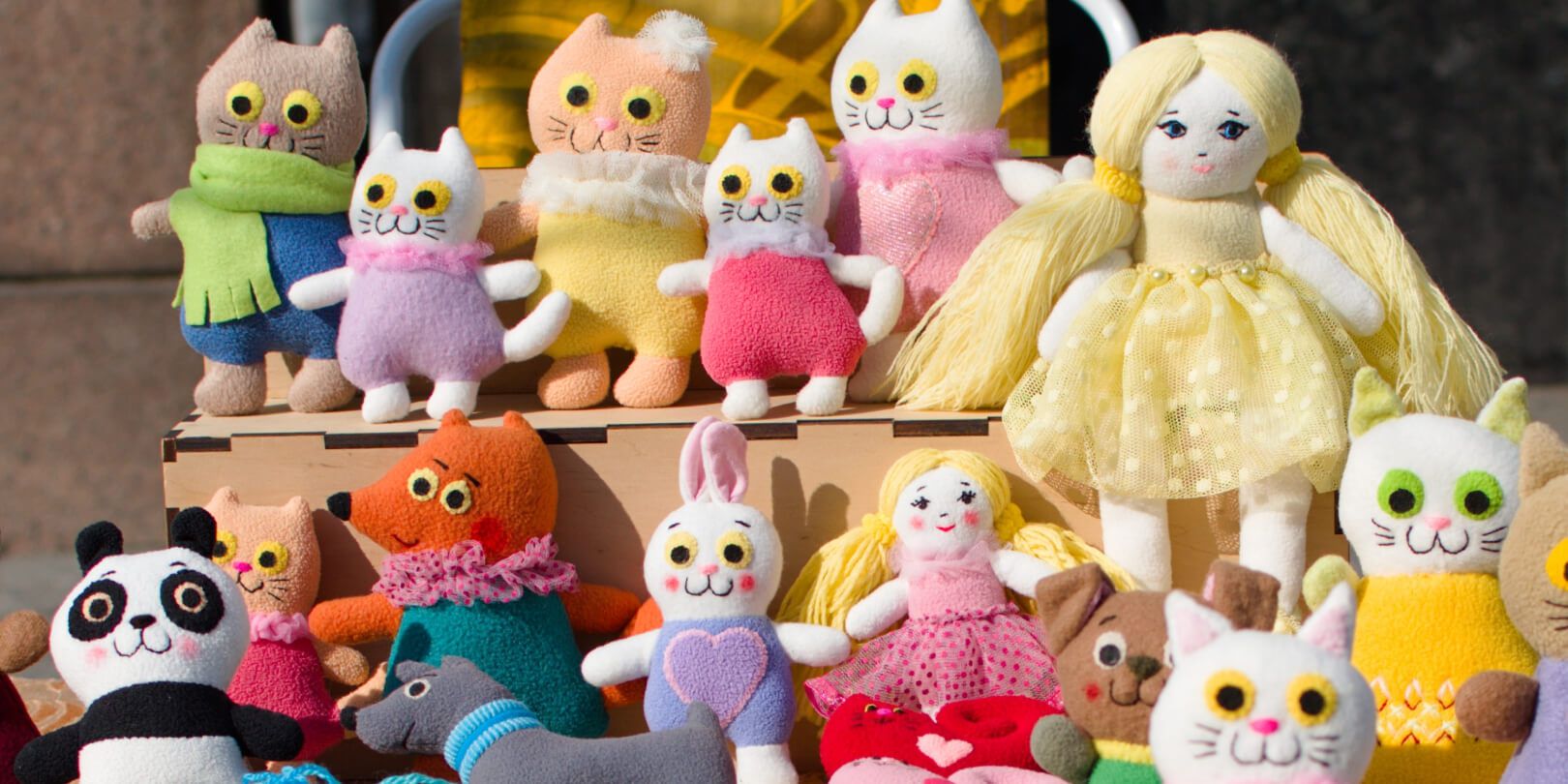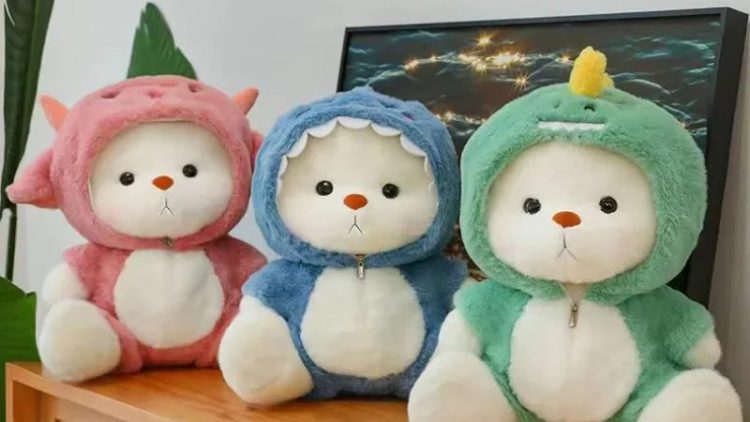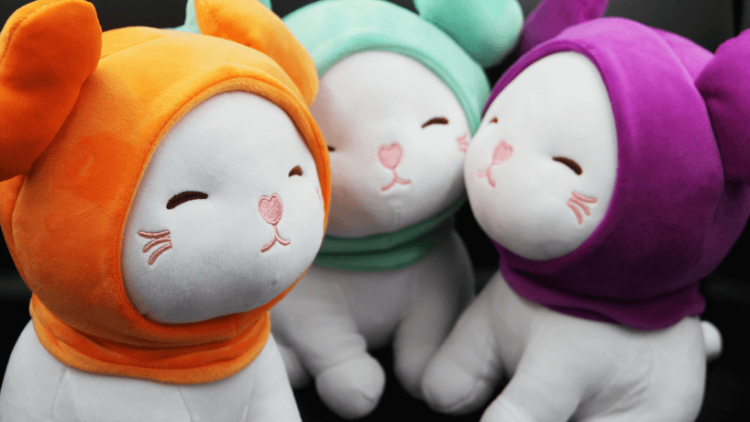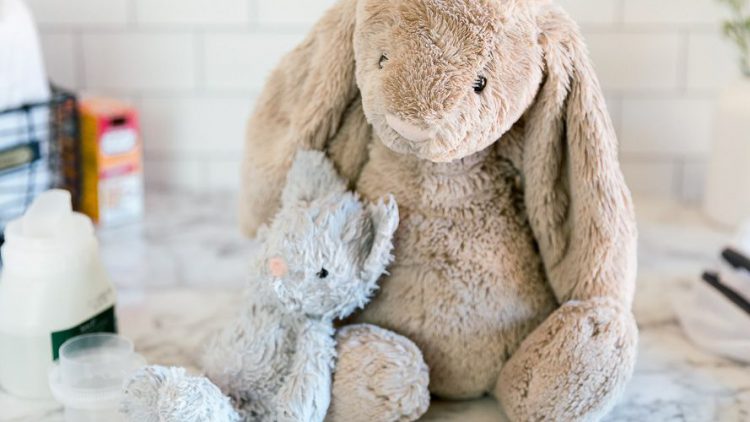
Stuffed toys have been a beloved part of childhood for generations. From teddy bears to bunnies, kittens to fantasy creatures, these soft companions offer more than just cuddles — they carry emotional weight, memories, and meaning. At Mohandas, we believe plush toys are more than products; they’re emotional anchors that connect people to comfort, imagination, and love.
1. The Psychology Behind Plush Toys
There’s a reason why children instinctively reach for a stuffed animal when they’re scared, lonely, or tired. Psychologists have long studied the role of transitional objects — items that help children feel secure when separated from their parents. Stuffed toys often serve this role, offering a sense of safety and familiarity.
The soft texture, rounded shapes, and gentle facial expressions of plush toys trigger calming responses in the brain. They’re designed to be non-threatening, approachable, and comforting. Even adults can experience emotional relief from holding a plush toy, especially during stressful times.
2. Emotional Support for All Ages
While plush toys are often associated with children, their emotional value extends far beyond childhood. Many adults keep their childhood stuffed animals well into their twenties, thirties, or even longer. These toys become symbols of resilience, nostalgia, and personal history.
In recent years, plush toys have gained popularity as emotional support items for adults. Whether it’s a soft bear on a work desk or a comforting bunny during travel, these toys offer grounding and emotional regulation. Some people even use plush toys during therapy sessions to express feelings they struggle to verbalize.
3. Plush Toys in Therapy and Mental Health
Therapists often use stuffed animals in sessions with children to help them open up emotionally. A plush toy can act as a “safe listener,” allowing children to project their feelings onto the toy. This technique helps therapists understand what the child is experiencing without direct confrontation.
In trauma therapy, plush toys can be used to rebuild trust and safety. For children who have experienced neglect or abuse, a soft, non-judgmental companion can be a powerful tool for healing. Even in adult therapy, plush toys may be used to reconnect with inner child work or to soothe anxiety.
4. Cultural Significance Around the World
Stuffed toys aren’t just popular — they’re culturally significant. In Western cultures, the teddy bear is a symbol of comfort and childhood innocence. In Japan, plush toys like Rilakkuma and Hello Kitty are part of a broader kawaii (cute) culture that celebrates softness and emotional expression.
In many Asian cultures, plush toys are given as gifts to express affection, friendship, or romantic interest. A stuffed animal can say “I care about you” in a way that words sometimes cannot. In Korea, couples often exchange plush toys as part of their dating rituals. In China, plush toys are popular during festivals and holidays, often symbolizing luck or prosperity.
5. The Rise of Personalized Plush Toys
One of the most exciting trends in the plush toy industry is customization. At Mohandas, we’ve seen a growing demand for personalized stuffed animals — toys that reflect a person’s name, favorite color, or even a custom character design. These toys aren’t just cute; they’re deeply meaningful.
Custom plush toys make perfect gifts for birthdays, anniversaries, or milestones. They can be designed to resemble pets, fictional characters, or even loved ones. For businesses, personalized plush toys offer a unique way to connect with customers and build brand loyalty.
6. Stuffed Toys as Storytellers
Every plush toy tells a story. Whether it’s a bear named Max who helped a child through a hospital stay, or a bunny named Luna who traveled across countries in a backpack, these toys become part of our personal narratives.
At Mohandas, we encourage customers to name their toys, create backstories, and share their adventures. This storytelling aspect adds emotional depth and makes each toy feel truly special. It’s not just a product — it’s a character in someone’s life.
7. Plush Toys in Pop Culture
Stuffed animals have made their mark in pop culture too. Think of Winnie the Pooh, Paddington Bear, or Lotso from Toy Story. These characters aren’t just animated — they’re plush icons that have shaped generations.
Even social media has embraced plush toys. Instagram accounts dedicated to plush toy photography, TikTok videos featuring plush adventures, and YouTube unboxings of custom plushies have created a vibrant online community. Plush toys are no longer just for kids — they’re for anyone who appreciates softness, creativity, and emotional connection.
8. Why Mohandas Believes in the Power of Plush
At Mohandas, we don’t just sell stuffed toys — we create companions. Our designs are inspired by warmth, kindness, and imagination. We use safe, eco-friendly materials and offer customization options so every customer can find a plush toy that speaks to them.
We believe that a stuffed toy can change someone’s day. It can offer comfort during hard times, celebrate joyful moments, or simply bring a smile. That’s why we’re committed to making plush toys that matter — emotionally, culturally, and personally.
Conclusion: More Than Just Cute
Stuffed toys may look simple, but their impact is profound. They comfort, connect, and carry stories. Whether you’re a child hugging a bear at bedtime or an adult gifting a bunny to a friend, plush toys speak a universal language of love and care.
At Mohandas, we’re proud to be part of that story. Because in a world that can feel overwhelming, sometimes all you need is something soft to hold — and someone to understand.



